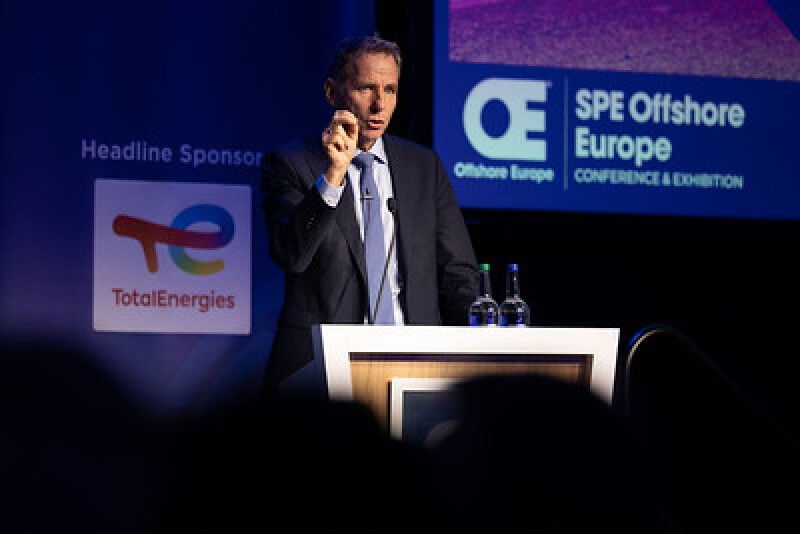For as much that has changed in the 50 years since the first Offshore Europe event was held at Aberdeen University, much has remained the same. The world endured the 1973 Oil Embargo while transitioning from coal to oil and gas as its primary energy resource. Today, the world contends with a new energy crisis and challenging transition that seeks the elimination of all fossil fuels from the energy resource mix.
The shared similarity is obvious to the UK’s Minister of State for Energy Security and Net Zero, Graham Stuart.

“The oil and gas industry helped restore energy security, drive down prices, and turn our economy around. Five decades later, we face another global energy crisis with soaring prices triggered by Putin's unprovoked invasion of Ukraine and his attempt to weaponize the fuel markets,” he told delegates during the opening plenary on 5 September.
In his keynote remarks, Jarand Rystad, chief executive of Oslo-based energy consultancy Rystad Energy, shared with delegates how coal in 1973 was used to heat homes and create the steam necessary to power locomotives and ships.
"In less than 20 years, the technology went from 95% to 5%," he said. "It was a tremendously fast energy transition. Gasoline, diesel, and natural gas replaced coal for these applications. It was also an enormous infrastructure completely changed in 20 years."
This “North Sea adventure,” according to Rystad, “created enormous wealth for the countries in the North Sea region. Norway is sitting on funds of 1 trillion pounds. It has provided a tremendous fortune for the industry. But now, we are going into the next transition.”

The adventure continues, with the North Sea playing an integral part, according to Stuart.
“Now, as then, North Sea oil and gas has a huge role in protecting the British people and their energy security. Let me be absolutely clear. This government firmly believes that UK oil and gas production is part of the solution, not the problem,” he said.
Stuart cited a recent North Sea Transition Authority report that concluded that domestically produced gas is, on average, almost four times cleaner than imported liquefied natural gas (LNG).
According to the report, this is due to how the gas is transferred and, in some cases, the extraction methods. Norway has the lowest carbon intensity of all LNG imports at 33 kg CO2/BOE, Peru has the highest at 90, with the average coming to 79, while UK gas has a carbon intensity of only 21 kgCO2/BOE.
“That's because domestic gas production has around a quarter of a carbon footprint of imported LNG,” he said, adding that when the country reaches Net Zero by 2050 as it is legally obligated to do, “around a quarter of our energy needs will still come from oil and gas. Using our British resources will avoid polluting imports, higher carbon emissions, and reduced energy.”
As 2050 approaches, Rystad said that he sees solar, wind, hydropower, geothermal, and biomass will “push gas, oil, and coal off the market.”
“And this is also the logic. It is not that we’re stopping oil, gas, and coal; it will only create disruption."


